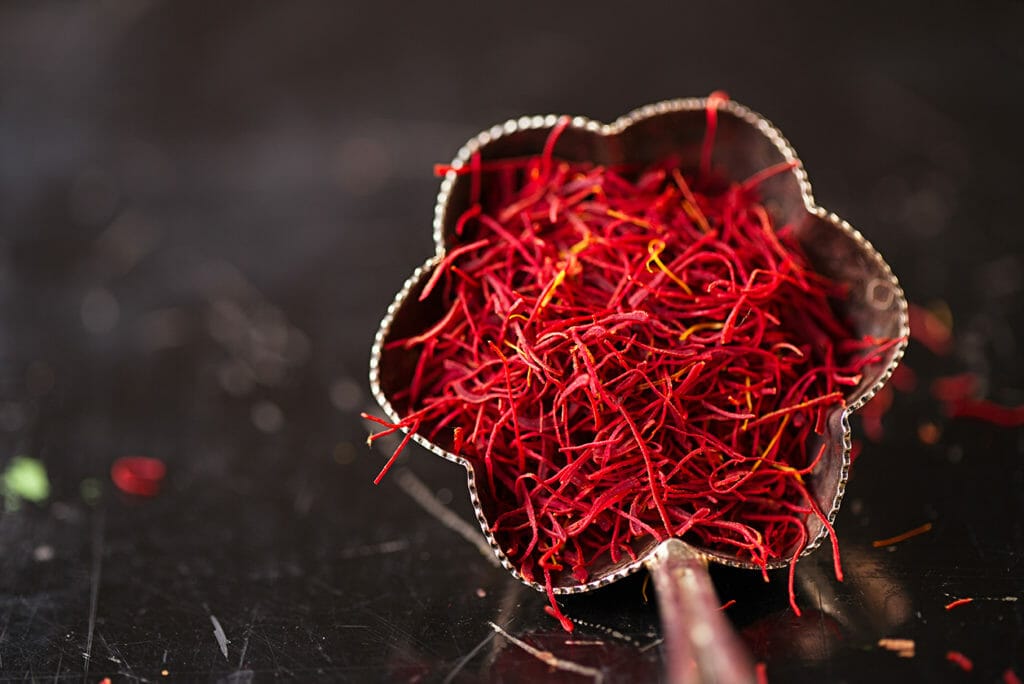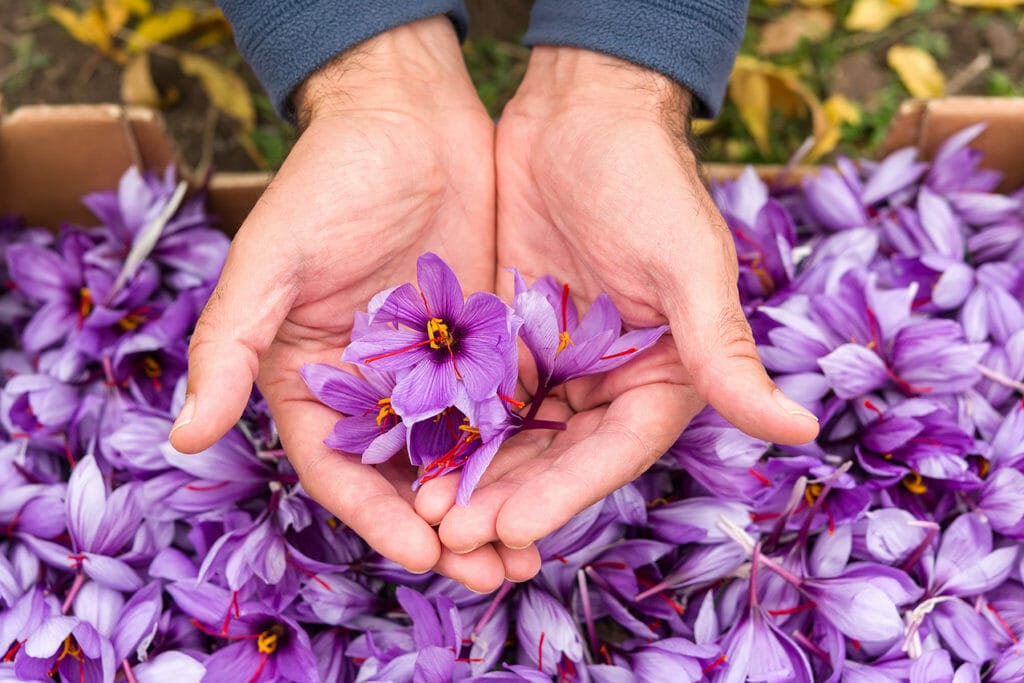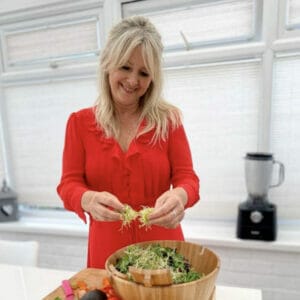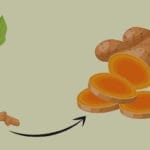Our Immune System, Stress and Saffron
Winter is coming and as many have learned regarding infectious agents, the variation between infection and disease remains a societal and individual experience[1]. Whilst there is, for every pathogen, a threshold at which an infection becomes problematic; all the immune system must do is suppress its rise below this line to keep you free of adverse outcomes. This capability varies seasonally and from one person to another, albeit there remains a high level of germline-encoded innate response in the human population. Adaptive or learned immunity of course has a wide range of response-related influences.

Nutrition and the Immune System
The underlying constant refrain of prior commentary is that nutrition is a modifiable component of immune competence and that regardless of age, gender, or health status, optimising immune-related nutrition ensures the most competent response but also reduces metabolic disturbance that contributes to vulnerability. The Journal Nutrients in May 2021 published a systematic review and meta-analysis exploring the role of micronutrients and supplementation in relation to Covid-19[2]. Concluding that “a robust immune system has general protective effects against disease infection and severity”. Micronutrients are shown to be fundamental in strengthening and maintaining immune function. The authors concluded their review showing that micronutrients in their entirety have effects on COVID-19 incidence and severity outcomes. “Individuals without micronutrient deficiency had reduced odds of COVID-19 incidence and disease severity“.
It seems as people are integrating their experiences with higher numbers of new people, other respiratory infections are also on the rise, particularly, respiratory syncytial virus (RSV), Rhinoviruses and Norovirus.
Planning (rather than just reacting) to keep the immune system functioning for all infectious diseases especially those of a respiratory nature should be a public health policy. Especially recommendations around zinc, vitamins C and D[3]. However, the quality of many nutrition studies results in ‘difficult to qualify’ outcomes. Whilst nutrition outcome-based research studies are improving, the reported outcomes remain open to interpretation and bias[4].
Regardless, the disconnect between the public grasp of the relevance of nutritional importance in the generation of immune capacity, and the prevention of metabolic disturbance is described as a concept, posited by the French intellectual Pierre Bourdieu. It is in effect, an issue ‘hidden in plain sight’, that is largely ignored because it seems slow-moving, technical, or vaguely familiar due to our cultural biases.
In turn, the dubiousness of sterilising immunity as a guaranteed solution to infection is a reminder that just about any immune response can be overwhelmed if exposures are heavy and frequent enough. The best we can aim for is ‘functional‘ immunity, where our immune response is more like a flame retardant than a firewall, that keeps bad burns at bay. Our future with SARS-CoV-2, then, will be more about domesticating the virus than eliminating it[5].
Mood Management
The impact of uncertainty creates different levels of anxiety. Some seem to thrive on creating chaos, but most find they must utilise resources to manage it. The costs to each person differ, but there is a direct connection between stress and immune response and chronic exposure is causally involved in the development of mental and physical disease[6].
Stress refers to a state in which adverse stimuli threaten an organism’s homeostasis[7]. The organism subsequently generates a compensatory response of the sympathetic–adrenal–medullary system and hypothalamic–pituitary–adrenal (HPA) axis activation. As a result, catecholamine and cortisol are released and trigger downstream effects on metabolic, cardiovascular, immune, and gastrointestinal functions, among others. Underlying psychoneuroimmune interactions which lower immune response to viral infections become important components of clinical care and prediction, improving mood and reducing most forms of adverse stress and conferring a risk reduction in the face of Covid-19 related infection. Lifestyle interventions generate a benefit by reducing detrimental stress-related changes.
The psychoneuroimmune mechanisms by which a healthy diet influences the brain are manifold, e.g. modulation of neurotransmitters and neurotrophins, reduction of inflammation, and reduction of oxidative stress. Nutraceuticals such as omega-3 polyunsaturated fatty acids (ω−3-PUFAs), N-acetylcysteine, S-adenosylmethionine, B- and D-vitamins, pre-and probiotics also demonstrate selective intervention against known deficiencies. The same nutrients required for immune system health are required for mental health.

Saffron
One long-used plant-derived compound from saffron has shown non-addictive benefits related to stress management, particularly related to enhanced sleep[8]. Saffron extracts, from the beautiful Crocus flower, have been shown to contribute to emotional and mental balance[9], helps to support relaxation, and to maintain a positive mood[10]. Six clinical trials have shown that 30mg of Iranian saffron extract significantly corrects severe mood troubles compared to placebo, with the first significant positive effects observed after only 1 week. And what’s more, 30mg daily saffron extract provides the same effectiveness as well-known pharmaceutical mood stabilisers, such as fluoxetine and imipramine, without any adverse effects[11].
Another open study using 15mg of saffron extract twice daily for 30 days showed improved mood after only 15 days. In addition, after 30 days, more than 50% of subjects felt better sleep quality[12]. 3 out of 4 people feel happier and more relaxed after only 15 days on 30mg saffron extract.
It also has the potential to enhance the immune response to Covid-19[13]. This safe and effective supplement also aids memory and is likely to be a suitable supplement for adolescents and others seeking to cover multiple interactive psycho-neuro-immuno-modulatory systems safely and quickly[14].

Conclusion
Reports are accumulating that acute resolvable challenges to neuroendocrine activation, i.e. short intense stress response activating events (that include exercise, forest walking, yoga, humour, social interactions etc), can improve the immune defence against viruses[15].
The antidote for a virus-favouring immune constellation, therefore, seems to be a well-trained neuroendocrine-immune stress response. Which can be generated by a balanced degree of activation alternating with relaxation, supported by optimum nutrition, the use of natural stress mediators and supplementation that shapes an immune response that is optimally equipped for the challenges imposed by new infectious agents and chronic non-infectious disease-promoting activities.

Dr Elisabeth Philipps PhD BSc (Hons) BSc Nutr Med AFMCP
Dr Elisabeth Philipps is a clinical neuroscientist and functional medicine practitioner and runs a health consultancy specialising in brain health, the endocannabinoid system and phytocannabinoids including C*B*D and medicinal cannabis. She regularly presents at conferences and events and provides expert opinion for the national press, specialist healthcare publications and health companies. You can connect with Elisabeth via:
www.drelisabethphilipps.com | instagram – @drelisabethphilipps | Twitter – @drphilipps | Linked In – Dr Elisabeth Philipps
References
[1] Shah VK, Firmal P, Alam A, Ganguly D and Chattopadhyay S (2020) Overview of Immune Response During SARS-CoV-2 Infection: Lessons From the Past. Front. Immunol. 11:1949
[2] Wang MX, Gwee SXW, Pang J. Micronutrients Deficiency, Supplementation and Novel Coronavirus Infections-A Systematic Review and Meta-Analysis. Nutrients. 2021 May 10;13(5):1589.
[3] Abioye AI, Bromage S, Fawzi W. Effect of micronutrient supplements on influenza and other respiratory tract infections among adults: a systematic review and meta-analysis. BMJ Glob Health. 2021 Jan;6(1):e003176.
[4] Newberry S. What do we really know about micronutrient supplementation and risk for upper respiratory infection?. BMJ Glob Health. 2021;6(1)
[5] Zhang S,. The Coronavirus Is Here Forever. This Is How We Live With It. The Atlantic August 17 2021
[6] Engert, V., Blasberg, J.U., Köhne, S. et al. Resilience and personality as predictors of the biological stress load during the first wave of the Covid-19 pandemic in Germany. Transl Psychiatry 11, 443 (2021).
[7] Chrousos GP. Stress and disorders of the stress system. Nat Rev Endocrinol. 2009 Jul;5(7):374-81. doi: 10.1038/nrendo.2009.106.
[8] Srivastava R, Ahmed H, Dixit RK, Dharamveer, Saraf SA. Crocus sativus L.: A comprehensive review. Pharmacogn Rev. 2010;4(8):200-208.
[9] Bian Y, Zhao C and Lee SM-Y (2020) Neuroprotective Potency of Saffron Against Neuropsychiatric Diseases, Neurodegenerative Diseases, and Other Brain Disorders: From Bench to Bedside. Front. Pharmacol. 11:579052.
[10] Jackson PA, Forster J, Khan J, Pouchieu C, Dubreuil S, Gaudout D, Moras B, Pourtau L, Joffre F, Vaysse C, Bertrand K, Abrous H, Vauzour D, Brossaud J, Corcuff JB, Capuron L and Kennedy DO (2021) Effects of Saffron Extract Supplementation on Mood, Well-Being, and Response to a Psychosocial Stressor in Healthy Adults: A Randomized, Double-Blind, Parallel Group, Clinical Trial. Front. Nutr. 7:606124.
[11] Kashani L, Eslatmanesh S, Saedi N, Niroomand N, Ebrahimi M, Hosseinian M, Foroughifar T, Salimi S, Akhondzadeh S. Comparison of Saffron versus Fluoxetine in Treatment of Mild to Moderate Postpartum Depression: A Double-Blind, Randomized Clinical Trial. Pharmacopsychiatry. 2017 Mar;50(2):64-68. doi: 10.1055/s-0042-115306. Epub 2016 Sep 5.
[12] Pachikian BD, Copine S, Suchareau M, Deldicque L. Effects of Saffron Extract on Sleep Quality: A Randomized Double-Blind Controlled Clinical Trial. Nutrients. 2021 Apr 27;13(5):1473. doi: 10.3390/nu13051473.
[13] Ghasemnejad-Berenji M. Immunomodulatory and anti-inflammatory potential of crocin in COVID-19 treatment. J Food Biochem. 2021 May;45(5):e13718. doi: 10.1111/jfbc.13718. Epub 2021 Apr 4.
[14] Lopresti AL, Drummond PD, Inarejos-García AM, Prodanov M. affron®, a standardised extract from saffron (Crocus sativus L.) for the treatment of youth anxiety and depressive symptoms: A randomised, double-blind, placebo-controlled study. J Affect Disord. 2018 May;232:349-357.
[15] Peters EMJ, Schedlowski M, Watzl C, Gimsa U. To stress or not to stress: Brain-behavior-immune interaction may weaken or promote the immune response to SARS-CoV-2. Neurobiol Stress. 2021 May;14:100296.
[16] Kim H, Rebholz CM, Hegde S, et al Plant-based diets, pescatarian diets and COVID-19 severity: a population-based case–control study in six countries BMJ Nutrition, Prevention & Health 2021;4







